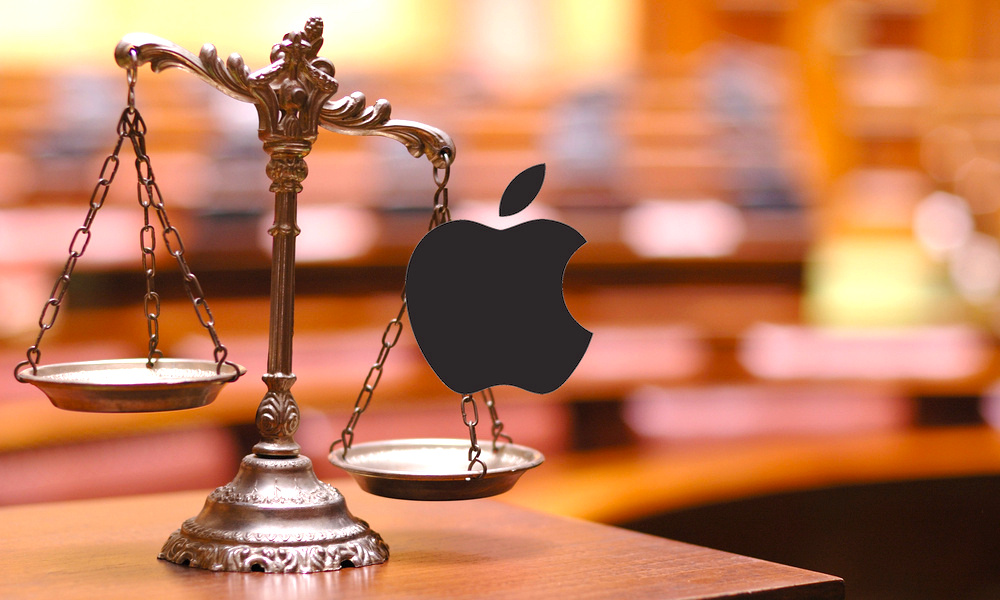Judge Rules Apple Did Not Invade Privacy of Former Executive
 Credit: corgarashu / Shutterstock
Credit: corgarashu / Shutterstock
Toggle Dark Mode
Last year Apple lost an important member of its chip design team, and subsequently became embroiled in a legal battle after it became apparent that the former executive had left to start his own competing semiconductor engineering firm, not only potentially using information he had acquired while working at Apple, but also partnering with other former Apple developers to do so.
After Apple filed suit in August, the executive in question, Gerard Williams III, responded with accusations that Apple had been spying on him in an attempt to get the lawsuit dismissed. Specifically, Williams claimed that Apple “significantly invaded his privacy” in reading his text messages, while also maintaining that the non-competition clause in his contrast with Apple was unenforceable under California law.
Williams’ departure was likely a significant loss for Apple, as in his role as a senior director in platform architecture, he led the development of all of Apple’s 64-bit A-series chips, from the A7 in the 2013 iPhone 5s all the way through to the A13 chip that powers Apple’s newest iPhone 11 lineup. Many sources credited Williams’ leadership efforts as a key factor in the success of Apple’s system-on-a-chip (SoC) designs, and by the time he left Apple he was overseeing not only the internal CPU cores for the chips, but also GPU graphics, memory, the Neural Engine, and overall performance in areas like reducing power consumption.
So there’s no doubt Apple was unhappy when Williams left the company, but according to the lawsuit filed in August, Apple had also discovered that Williams was actively making plans to start his own competitor long before he actually announced his departure. Court filings by Apple revealed text exchanges from as far back as October 2015 along with numerous calls that Williams had with those who would become his future partners. One message revealed in the filings by Apple quotes Williams as telling his cohorts that Apple would have “no choice but to purchase” his new company.
Judge (Mostly) Sides with Apple
Back in December, Williams attempted to get Apple’s lawsuit thrown out on the basis that California generally doesn’t allow non-competition clauses in employment contracts, while also contending that Apple had no right to read the text messages on his iPhone nor look at his call history.
According to Bloomberg, however, Santa Clara County Superior Court Judge Mark Pierce dismissed both of Williams’ claims in a tentative ruling that would allow Apple’s lawsuit to proceed.
Judge Pierce notes that while there is a law on the books in California that allows workers to develop new businesses while they are employed elsewhere, this law is not intended to “permit an employee to plan and prepare to create a competitive enterprise prior to termination if the employee does so on their employer’s time and with the employer’s resources,” which Apple maintains was exactly what Williams was doing. Phone calls occurred during company time from Williams’ office at Apple, and the text messages were presumably sent using an iPhone that was issued to Williams by his employer, Apple.
This last point also led Judge Pierce to dismiss the claim that Apple invaded his privacy by reviewing his text messages. While Williams wanted these excluded as evidence in the lawsuit, Pierce wrote in his ruling that “there are no allegations in the complaint establishing that the text messages were obtained as the result of eavesdropping upon or recording a confidential communication.”
While none of the court filings go into specifics on how Apple obtained Williams’ text messaging history, the fact that there was no “eavesdropping” involved strongly suggests that he was using a company-owned device, which Apple would have readily been able to access the content of — as most large companies can do with the devices they issue to their employees. In fact, in many jurisdictions, communications that occur on company-owned hardware are considered the property of the company, and employees should have no expectation of privacy when sending or receiving emails or text messages using company resources.
Although Williams failed to get the case or even any of the evidence dismissed, he did win one small victory. In its claim, Apple had requested punitive damages, likely in an effort to make an example of Williams, but Judge Pierce rejected that claim, saying that Apple had failed to demonstrate that Williams set out to “intentionally harm his former employer by being disloyal.”
The ruling at this point is tentative, and isn’t intended to address the actual merits of Apple’s claims. If it becomes final, however, it means that the case will be allowed to proceed, at which point the actual evidence will be weighed to determine if Apple actually has a case against Williams.






